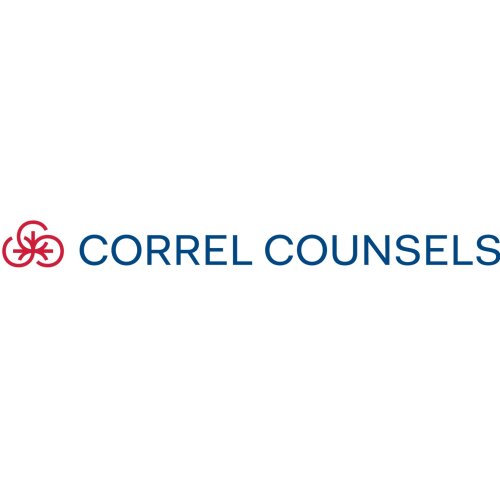Best Public-Private Partnerships (PPP) Lawyers in Malé
Share your needs with us, get contacted by law firms.
Free. Takes 2 min.
List of the best lawyers in Malé, Maldives
About Public-Private Partnerships (PPP) Law in Malé, Maldives
Public-Private Partnerships (PPP) in Malé, Maldives enable cooperation between government entities and private sector companies for the delivery of public infrastructure, services, and development projects. PPPs are typically used to harness private investment, expertise, and efficiency in areas like transport, utilities, healthcare, tourism, and housing. These partnerships are governed by a specific legal and regulatory framework to ensure transparency, fair risk allocation, and successful project implementation. PPP projects in the Maldives are vital for economic growth, especially given the country's unique geography and developmental needs.
Why You May Need a Lawyer
Engaging in or considering a Public-Private Partnership comes with complex legal, financial, and operational considerations. Here are some common reasons why you may need a lawyer for PPP matters in Malé, Maldives:
- Understanding government procurement and bidding procedures for PPP projects
- Negotiating and drafting comprehensive PPP contracts and related agreements
- Assisting with due diligence and risk assessment for potential partners or projects
- Ensuring compliance with Maldivian laws, regulations, and sector-specific requirements
- Securing permits, licenses, and approvals from relevant authorities
- Navigating land acquisition, environmental clearance, and local stakeholder consultations
- Handling disputes arising from contract performance, renegotiation, or termination
- Advising on financing structures, guarantees, and project funding mechanisms
- Protecting intellectual property and proprietary technology involved in a PPP
- Guiding on tax incentives, exemptions, and other government support measures
Local Laws Overview
Public-Private Partnerships in Malé are primarily regulated by the Public-Private Partnership Act (Law No. 20/2019) and overseen by the Ministry of Finance. The law sets out requirements for transparency, competitive bidding, and contract management, aiming to attract and safeguard investments while ensuring public interest. Key aspects of the local PPP law include:
- Establishment of a legal basis for PPP project identification, approval, and implementation
- Mandatory competitive tendering and selection procedures to promote fairness
- Clear guidelines on risk allocation, payment mechanisms, and project financing
- Requirements for feasibility studies, value-for-money analysis, and project justification
- Process for regulatory approvals, including environmental and social impact assessments
- Provisions for contract management, monitoring, and dispute resolution
- Specification of government support measures such as guarantees or subsidies
- Assignment of responsibilities to various government agencies, including the Ministry of Finance and relevant sector ministries
Additionally, specific PPP projects, especially in sectors like tourism, energy, or infrastructure, may be subject to additional laws and sectoral regulations, such as the Land Act, Environmental Protection and Preservation Act, and tax laws.
Frequently Asked Questions
What is a Public-Private Partnership (PPP) in the Maldives?
A PPP in the Maldives refers to a cooperative arrangement between a public authority and one or more private entities to finance, build, and operate projects or services traditionally provided by the government.
Who is responsible for overseeing PPP projects in Malé?
The Ministry of Finance is the primary oversight body for PPP projects in Malé. Sector-specific ministries may also be involved, depending on the nature of the project.
What types of projects can be developed through PPPs in the Maldives?
PPPs are used in sectors such as infrastructure (roads, ports, airports), utilities (water, electricity), healthcare, tourism, housing, and more.
How are PPP partners selected?
PPP partners are typically selected through a transparent and competitive bidding process, as required by Maldivian law.
Are foreign investors allowed to participate in PPP projects?
Yes, foreign investors can participate in PPP projects, subject to relevant Maldivian investment and sector-specific regulations.
What is the duration of a typical PPP contract?
PPP contracts can vary in duration, often ranging from 10 to 30 years, depending on project size, sector, and investment requirements.
How are risks shared in PPP arrangements?
Risks are typically allocated between the public and private partners based on negotiations and the nature of each risk (financial, operational, legal). The goal is to assign risks to the party best able to manage them.
What recourse do parties have in case of disputes in PPPs?
PPP contracts include dispute resolution mechanisms, such as negotiation, mediation, or arbitration, in line with Maldivian law and international best practices.
What environmental requirements must PPP projects fulfill?
Many PPP projects must undergo environmental impact assessments and comply with standards under the Environmental Protection and Preservation Act.
What should I look for in a PPP contract?
Key contract provisions include clear risk allocation, payment terms, performance standards, dispute resolution clauses, termination conditions, and mechanisms for regulatory compliance.
Additional Resources
If you need more information or guidance regarding PPPs in Malé, Maldives, consider reaching out to these organizations and resources:
- Ministry of Finance - PPP Unit
- Maldives Ministry of Economic Development
- Ministry of Tourism (for tourism-related PPPs)
- Maldives Attorney General’s Office
- Maldives Investment Promotion Agencies
- Licenced law firms in Malé with PPP expertise
- Maldives National Chamber of Commerce and Industry
- Environmental Protection Agency (for projects requiring environmental clearance)
Next Steps
If you are considering entering into or are already involved in a Public-Private Partnership in Malé, Maldives, here are some practical steps to follow:
- Identify the specific PPP opportunity and review relevant governmental guidelines
- Consult with a qualified lawyer or law firm experienced in PPP matters in Malé
- Obtain legal advice on structuring, negotiating, and formalizing the PPP agreement
- Conduct thorough due diligence and risk assessment with your legal and financial advisors
- Secure all necessary approvals, permits, and compliance certificates from government authorities
- Maintain regular communication with all involved parties, including stakeholders and regulators
- Monitor the project's progress and ensure ongoing compliance with your contractual and legal obligations
Working with a specialized lawyer can help ensure that your interests are protected, contractual arrangements are fair, and your PPP venture is structured for long-term success.
Lawzana helps you find the best lawyers and law firms in Malé through a curated and pre-screened list of qualified legal professionals. Our platform offers rankings and detailed profiles of attorneys and law firms, allowing you to compare based on practice areas, including Public-Private Partnerships (PPP), experience, and client feedback.
Each profile includes a description of the firm's areas of practice, client reviews, team members and partners, year of establishment, spoken languages, office locations, contact information, social media presence, and any published articles or resources. Most firms on our platform speak English and are experienced in both local and international legal matters.
Get a quote from top-rated law firms in Malé, Maldives — quickly, securely, and without unnecessary hassle.
Disclaimer:
The information provided on this page is for general informational purposes only and does not constitute legal advice. While we strive to ensure the accuracy and relevance of the content, legal information may change over time, and interpretations of the law can vary. You should always consult with a qualified legal professional for advice specific to your situation.
We disclaim all liability for actions taken or not taken based on the content of this page. If you believe any information is incorrect or outdated, please contact us, and we will review and update it where appropriate.

















